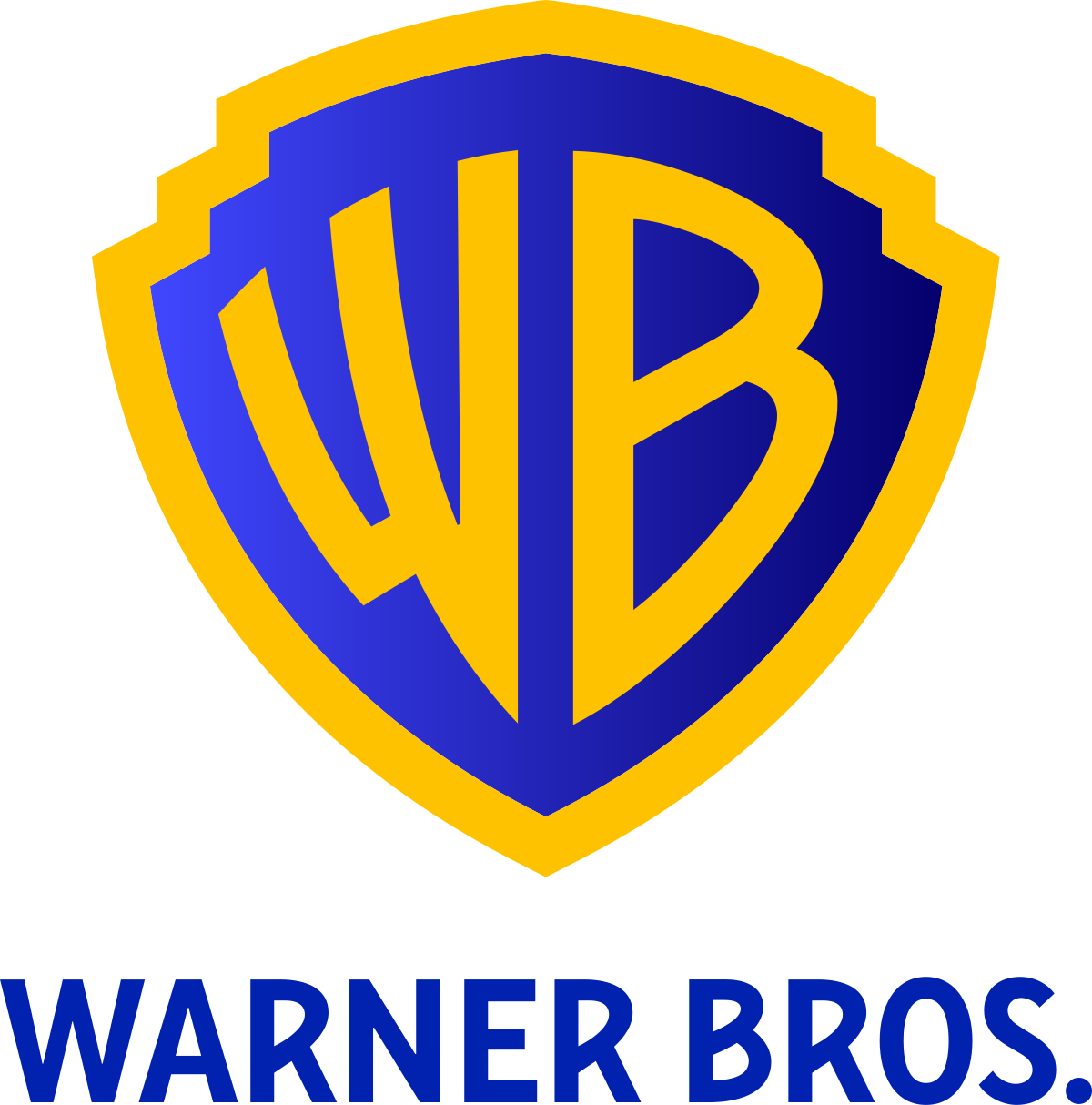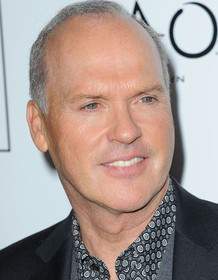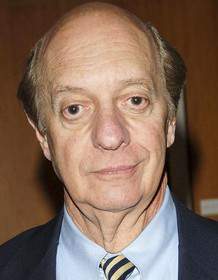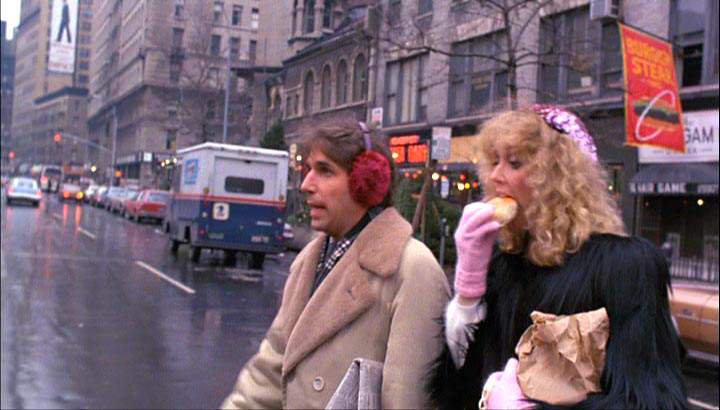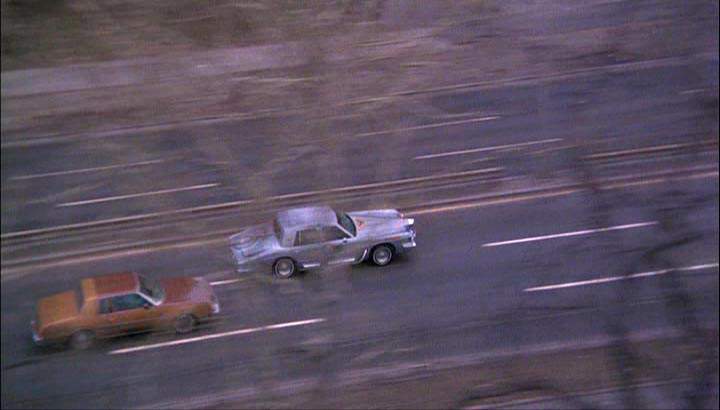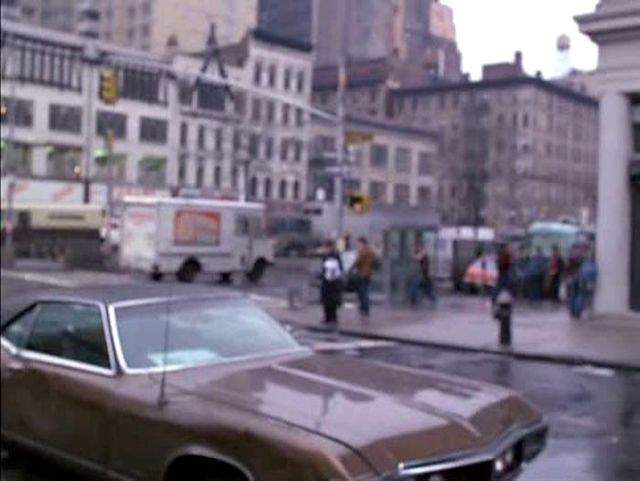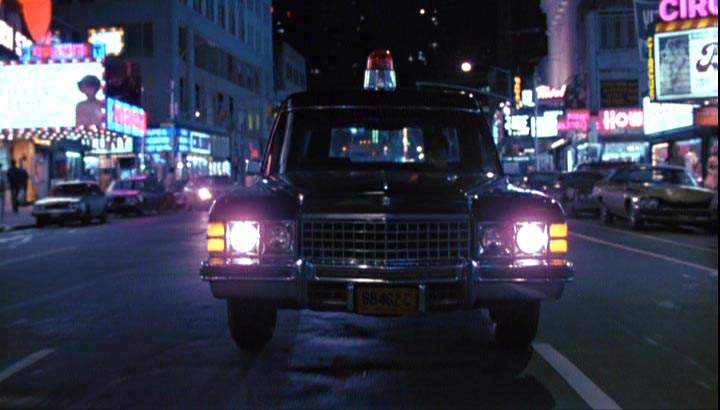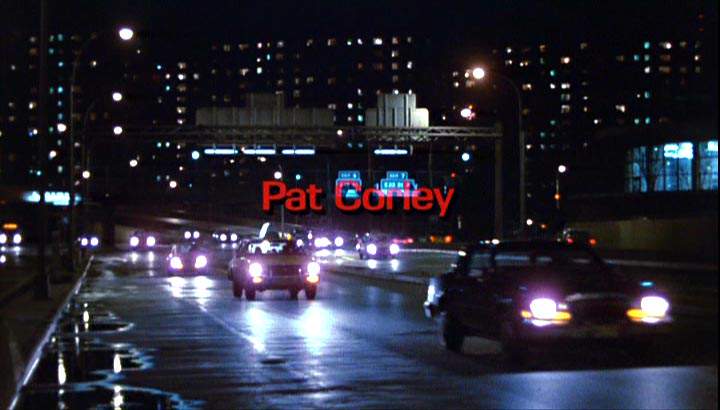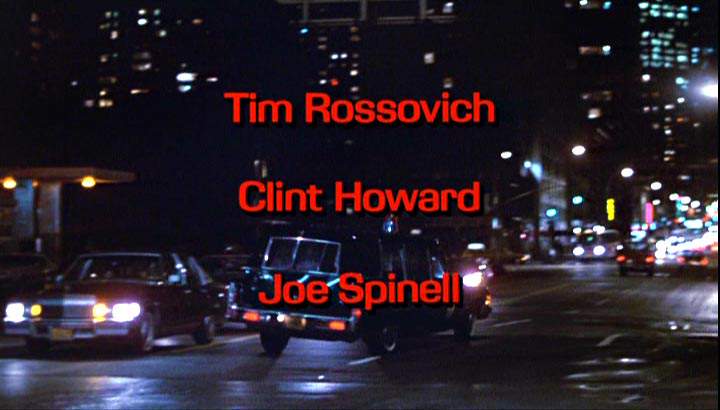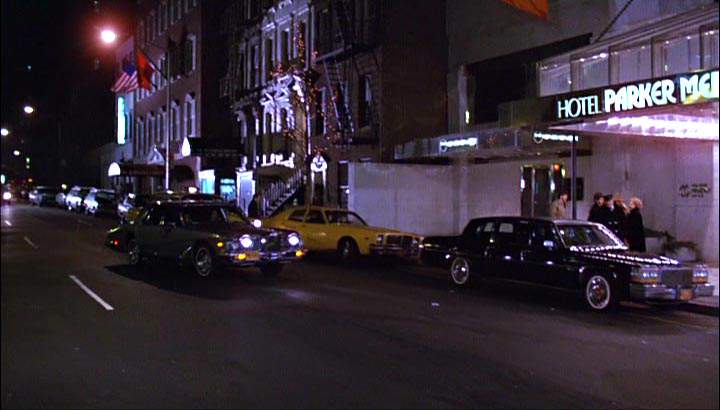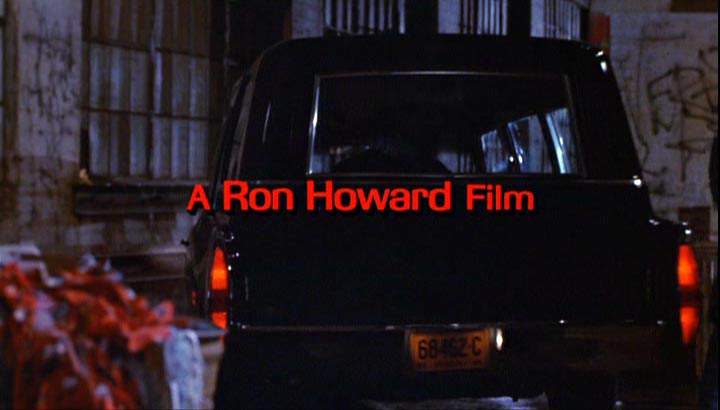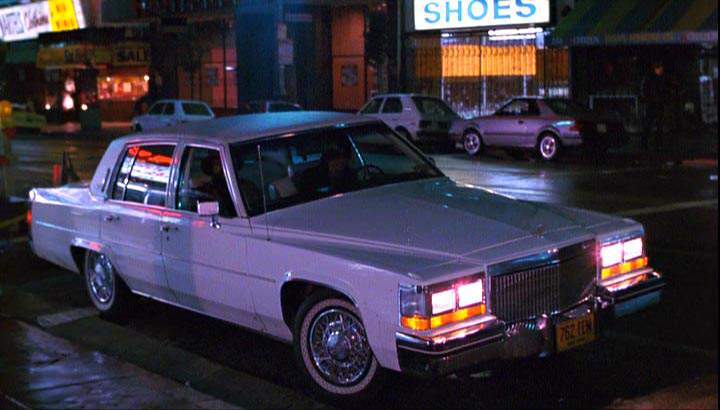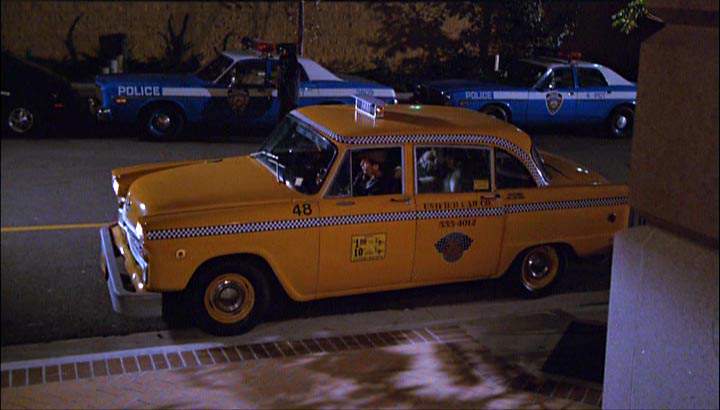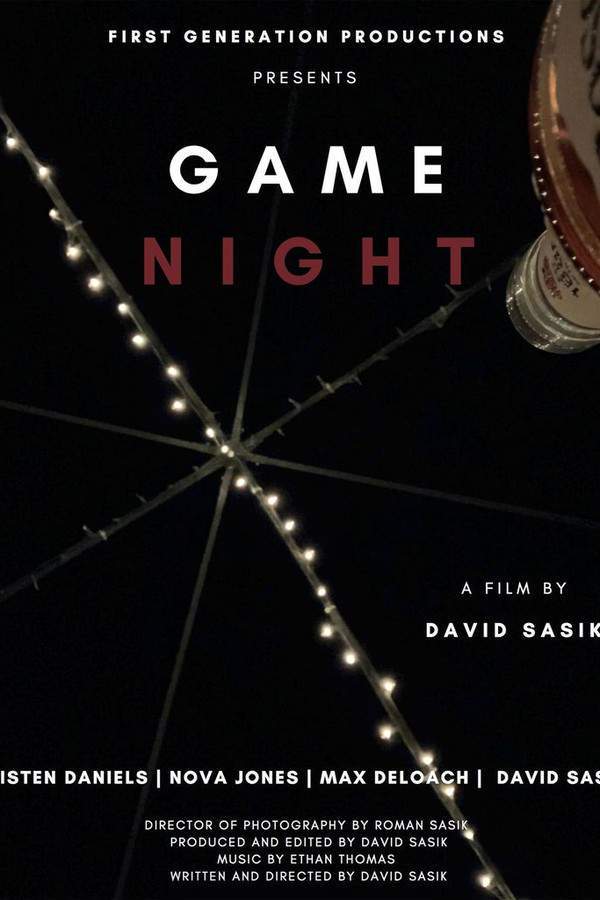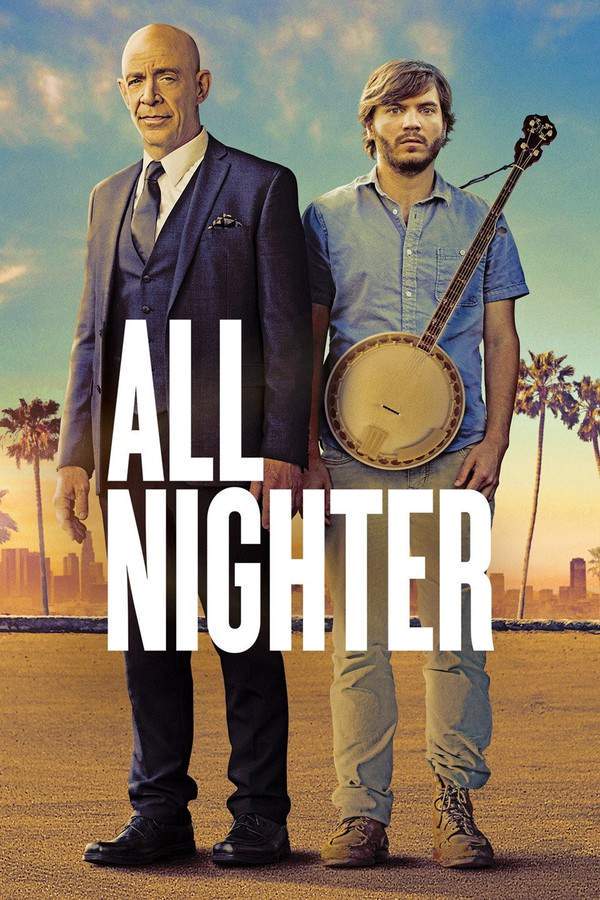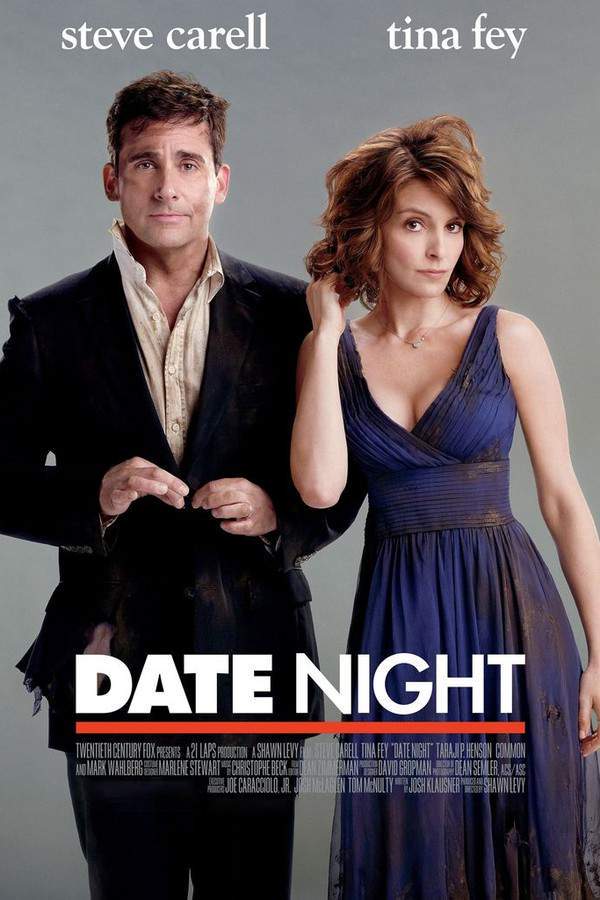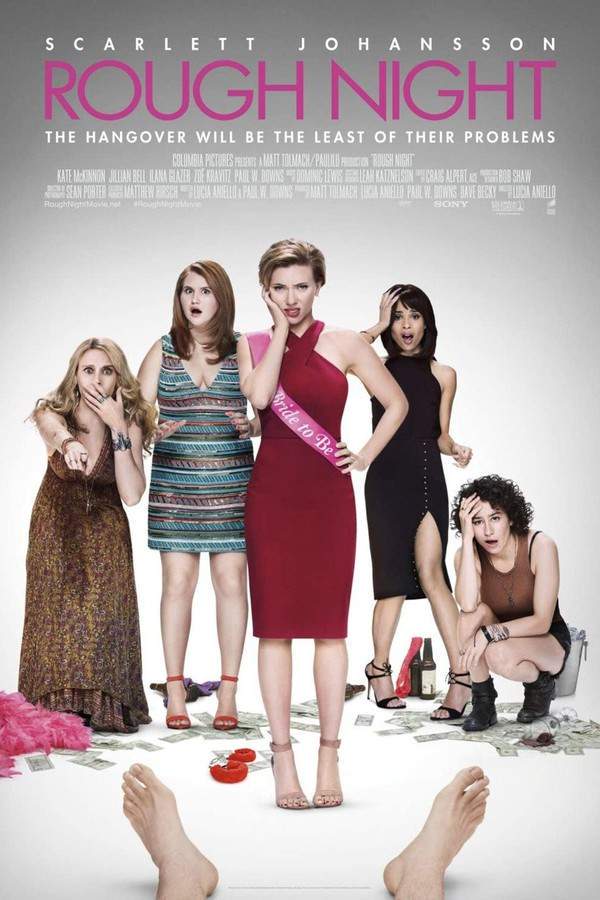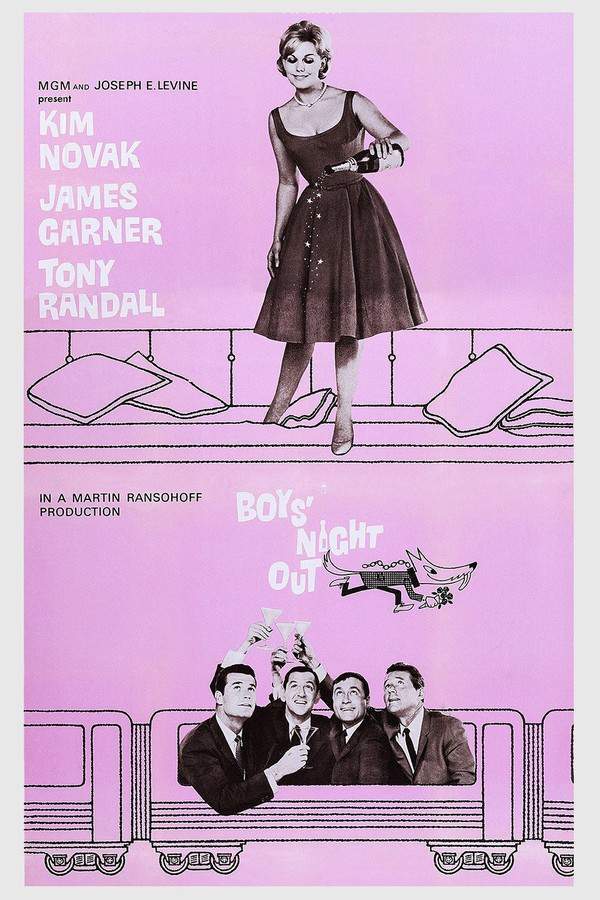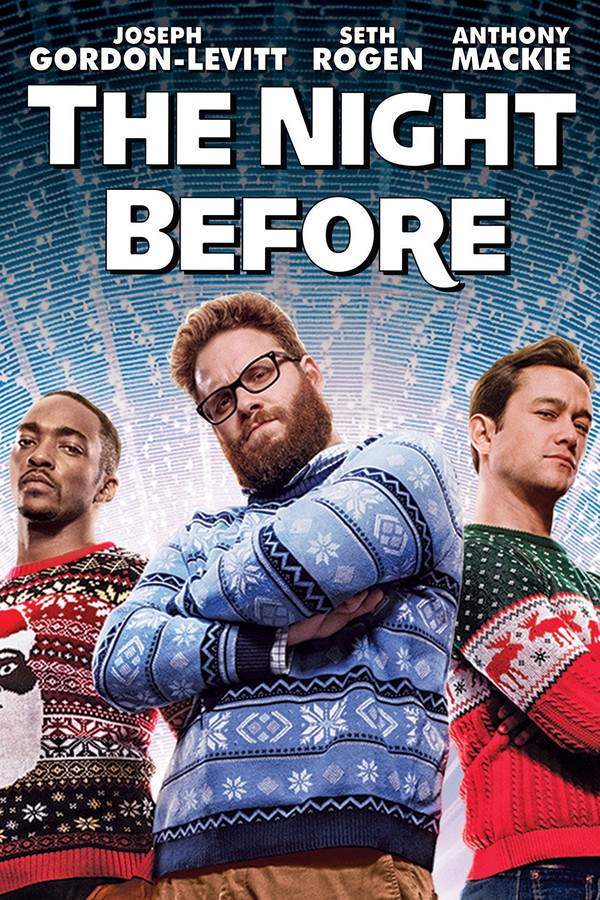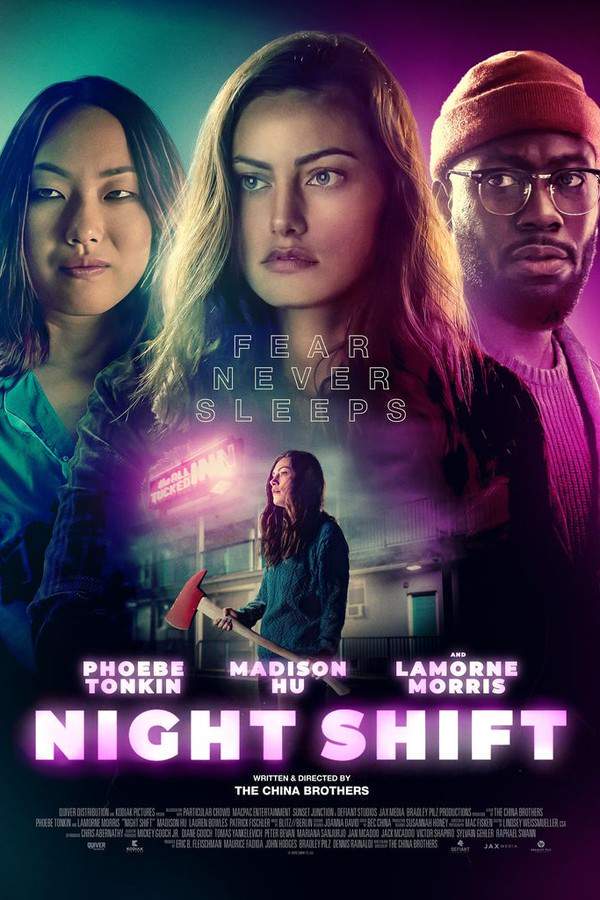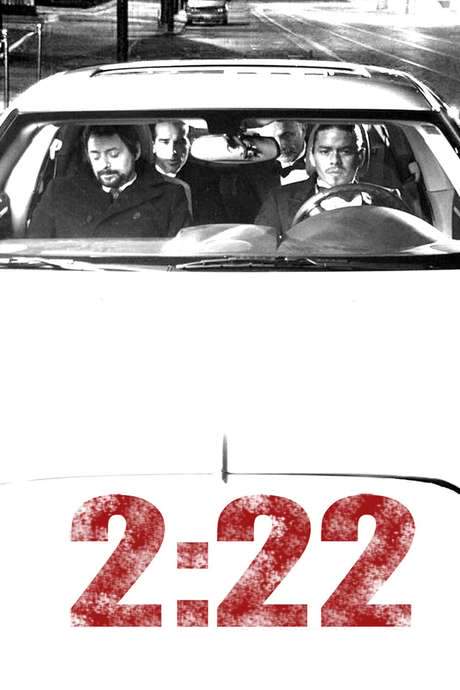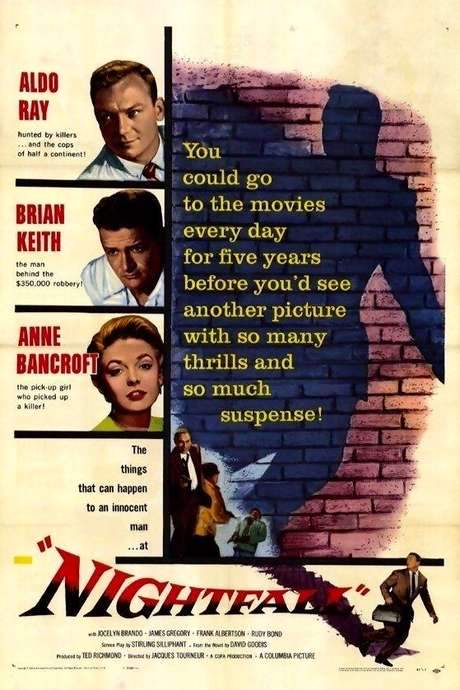Night Shift 1982
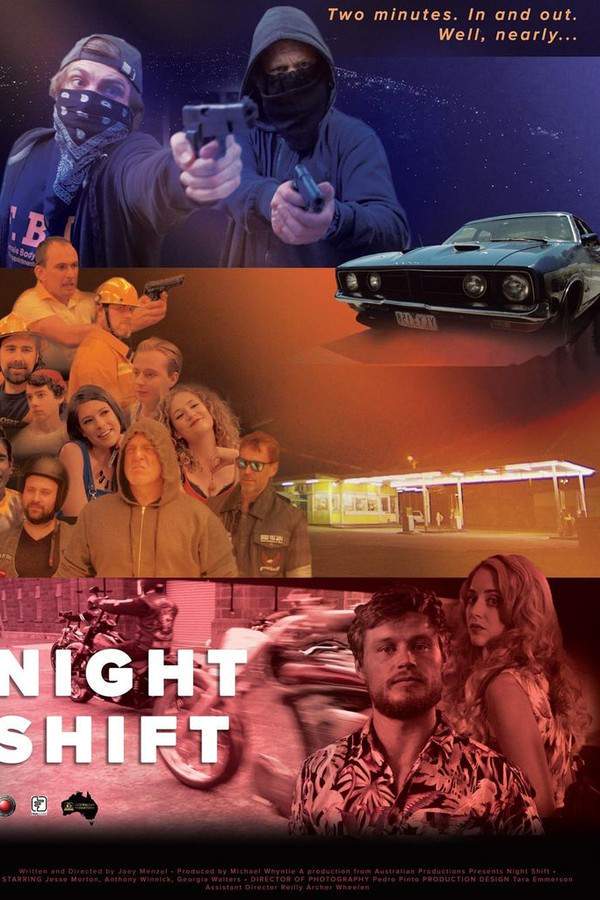
Two brothers, struggling to save their childhood home from foreclosure, devise a risky plan to rob a service station. Their scheme is complicated when a time lock unexpectedly traps them and several hostages inside, leading to a chaotic and hilarious series of events. As the situation escalates, the brothers find themselves on a wild ride filled with wacky misadventures and unexpected bonding.
Does Night Shift have end credit scenes?
No!
Night Shift does not have end credit scenes. You can leave when the credits roll.
Meet the Full Cast and Actors of Night Shift
Explore the complete cast of Night Shift, including both lead and supporting actors. Learn who plays each character, discover their past roles and achievements, and find out what makes this ensemble cast stand out in the world of film and television.
External Links and Streaming Options
Discover where to watch Night Shift online, including streaming platforms, rental options, and official sources. Compare reviews, ratings, and in-depth movie information across sites like IMDb, TMDb, Wikipedia or Rotten Tomatoes.
Ratings and Reviews for Night Shift
See how Night Shift is rated across major platforms like IMDb, Metacritic, and TMDb. Compare audience scores and critic reviews to understand where Night Shift stands among top-rated movies in its genre.

63
Metascore
7.8
User Score

60
%
User Score
Take the Ultimate Night Shift Movie Quiz
Challenge your knowledge of Night Shift with this fun and interactive movie quiz. Test yourself on key plot points, iconic characters, hidden details, and memorable moments to see how well you really know the film.
Night Shift Quiz: Test your knowledge on the classic 1982 film 'Night Shift' with this diverse quiz.
Who is the pimp that gets killed at the beginning of the movie?
Franklin
Bill
Chuck
Cleon
Show hint
Awards & Nominations for Night Shift
Discover all the awards and nominations received by Night Shift, from Oscars to film festival honors. Learn how Night Shift and its cast and crew have been recognized by critics and the industry alike.
40th Golden Globe Awards 1983
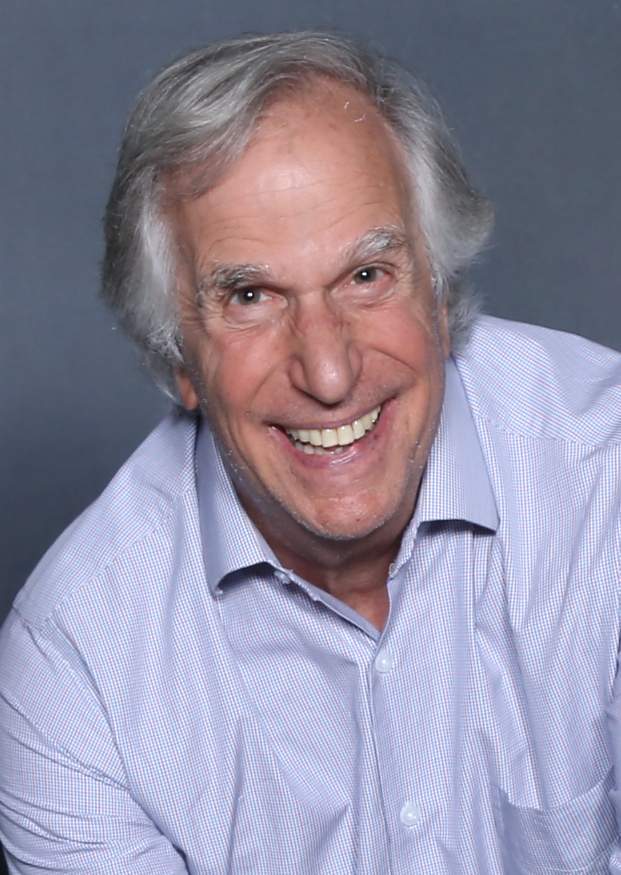
Full Plot Summary and Ending Explained for Night Shift
Read the complete plot summary of Night Shift, including all major events, twists, and the full ending explained in detail. Explore key characters, themes, hidden meanings, and everything you need to understand the story from beginning to end.
The film kicks off with the dramatic chase of a pimp named Franklin, portrayed by Julius LeFlore, who finds himself fleeing through the dark, chaotic streets of New York City. He is soon overtaken by fierce gangsters Cleon (played by Badja Djola) and Pig (brought to life by Richard Belzer), who mete out violent retribution for his failure to share his profits. In a cruel twist of fate, they toss him out of a high-rise window, where his lifeless body will soon be transported to the morgue. As the chilling events unfold, the opening credits roll, setting a grim tone.
The following day, the scene shifts to the morgue, where one of Franklin’s girls, Belinda (the talented Shelley Long), arrives to identify his body. While she’s doing so, morgue attendant Chuck Lumley (played by Henry Winkler) watches on, feeling a twinge of embarrassment as Belinda expresses concern for her fallen friend. She remarks on the impact of Franklin’s death on his girls, leading to a moment of awkward tension when she suggests Chuck seems familiar. Chuck’s unease is palpable, as he fears the detective might misinterpret his presence—what a profound way to set the stage for a comedy rife with misunderstandings!
Later that evening, Chuck learns from his boss (characterized by Floyd Levine) that he is being transferred to the night shift to accommodate the boss’s nephew. Being the introverted and subservient type that he is, Chuck accepts the change without protest, though his frustration is clear. At home, his fiancée Charlotte (portrayed by Gina Hecht), who is both neurotic and obsessed with diets, encourages him to be more assertive.
On his inaugural night shift, Chuck is assigned the task of training a new partner—Bill Blazejowski (played by Michael Keaton), an unstoppable chatterbox with a penchant for brainstorming impractical schemes. Bill’s charisma shines as he decides to use a hearse as a glamorous alternative for college student Jeffrey (played by Clint Howard)‘s prom date transportation.
As Chuck tries to unwind on his night off with Charlotte, the atmosphere is disturbed by raucous country-western music from a neighboring apartment. His awkward attempts to quiet the racket lead him to a fight for his safety with a muscular cowboy, only to be saved by none other than Belinda herself—an encounter that confirms his vague familiarity with her as she had passed him earlier. However, despite this serendipitous meeting, the night ends in frustration as Charlotte leaves, leaving Chuck feeling unfulfilled.
Chuck’s life takes another twist when he finds Belinda injured in the elevator, a victim of a client’s aggression. Belinda laments the dangers of her profession, expressing the difficulty of finding a reliable pimp to ensure safety. After assisting her back to her apartment, Chuck accidentally finds himself victimized by a troop of Bluebirds (girl scouts) who mistake him for Belinda’s aggressor. He is overwhelmed and hilariously pummeled by the girls’ cookie boxes, embodying the comedic essence of his character.
As Chuck confides in Bill about Belinda and the dire circumstances around her profession, Bill hatches an unconventional plan for the two of them to act as “Love Brokers” right out of the morgue. Initially hesitant, Chuck’s resolve strengthens as Belinda appears at his door, suggesting a breakfast together and unknowingly drawing him deeper into her world. Chuck finds himself completely captivated as he watches her cook in minimal attire, losing track of his phone call with Charlotte—this moment nets a blend of simplicity and humor indicative of the film’s charm.
Quickly, their operation becomes successful, with Chuck showing off his corporate acumen by helping the girls invest their earnings wisely, taking only a modest 10 percent as opposed to the typical 90% that pimps would claim. However, chaos looms when Bill, ever the brash character, invites college fraternity members to the morgue for a party with the girls, an action that could threaten their newfound success.
The movie reaches a peak when Bill and Chuck host an after-party as they embrace the fruits of their labor. After a night of joyous celebration, Chuck and Belinda’s relationship evolves as they share a tender kiss. But trouble brews when Chuck discovers that Belinda is still working, leading to a gripping confrontation that showcases Chuck’s struggle with his own lack of confidence.
As events unfold dramatically, we see Chuck’s journey towards self-assertion, culminating in a climactic confrontation with the antagonistic Cleon and Pig, which puts Chuck’s life at risk. Just when the situation appears dire, Bill swoops in with apparent customers who turn out to be vice cops, triggering a frantic gunfight that complicates their operations further.
Chuck and Bill experience the consequences of their audacious endeavors—spending a night in jail after their operation is exposed. The momentary hope that Charlotte might stand by Chuck is shattered when she coldly dismisses him upon her arrival. While the girls manage to bail the duo out, the gravity of their situation is not lost—much to Chuck’s delight, the city offers them their old jobs back, a cover-up to a scandalous incident.
As the storyline unfolds, Chuck stands at a crossroads where he must decide what he genuinely desires in life. After rekindling his spirit, he races to find Belinda, who is set to begin anew at an exclusive establishment, Paradise Found. The film’s climax revolves around Chuck’s resolute decision to assert himself, leading to a frenzied chaotic battle amid the nightclub’s ambiance.
Finally, as Chuck finds his way to Belinda, he professes his love in a moment of vulnerability that sparks change. Despite navigating through physical confrontations with club managers and wayward customers, Chuck’s journey comes full circle as he embraces the future—along with Belinda—in the vibrant landscape of New York City. The film concludes with his realization that by standing up for himself, he can chart a new course, embarking on a life filled with love and possibilities alongside Belinda.
Uncover the Details: Timeline, Characters, Themes, and Beyond!

Coming soon on iOS and Android
The Plot Explained Mobile App
From blockbusters to hidden gems — dive into movie stories anytime, anywhere. Save your favorites, discover plots faster, and never miss a twist again.
Sign up to be the first to know when we launch. Your email stays private — always.
Watch Trailers, Clips & Behind-the-Scenes for Night Shift
Watch official trailers, exclusive clips, cast interviews, and behind-the-scenes footage from Night Shift. Dive deeper into the making of the film, its standout moments, and key production insights.
Cars Featured in Night Shift
Explore all cars featured in Night Shift, including their makes, models, scenes they appear in, and their significance to the plot. A must-read for car enthusiasts and movie buffs alike.
Night Shift Themes and Keywords
Discover the central themes, ideas, and keywords that define the movie’s story, tone, and message. Analyze the film’s deeper meanings, genre influences, and recurring concepts.
Night Shift Other Names and Titles
Explore the various alternative titles, translations, and other names used for Night Shift across different regions and languages. Understand how the film is marketed and recognized worldwide.
Similar Movies To Night Shift You Should Know About
Browse a curated list of movies similar in genre, tone, characters, or story structure. Discover new titles like the one you're watching, perfect for fans of related plots, vibes, or cinematic styles.
Quick Links: Summary, Cast, Ratings, More

What's After the Movie?
Not sure whether to stay after the credits? Find out!
Explore Our Movie Platform
New Movie Releases (2025)
Famous Movie Actors
Top Film Production Studios
Movie Plot Summaries & Endings
Major Movie Awards & Winners
Best Concert Films & Music Documentaries
Movie Collections and Curated Lists
© 2025 What's After the Movie. All rights reserved.


